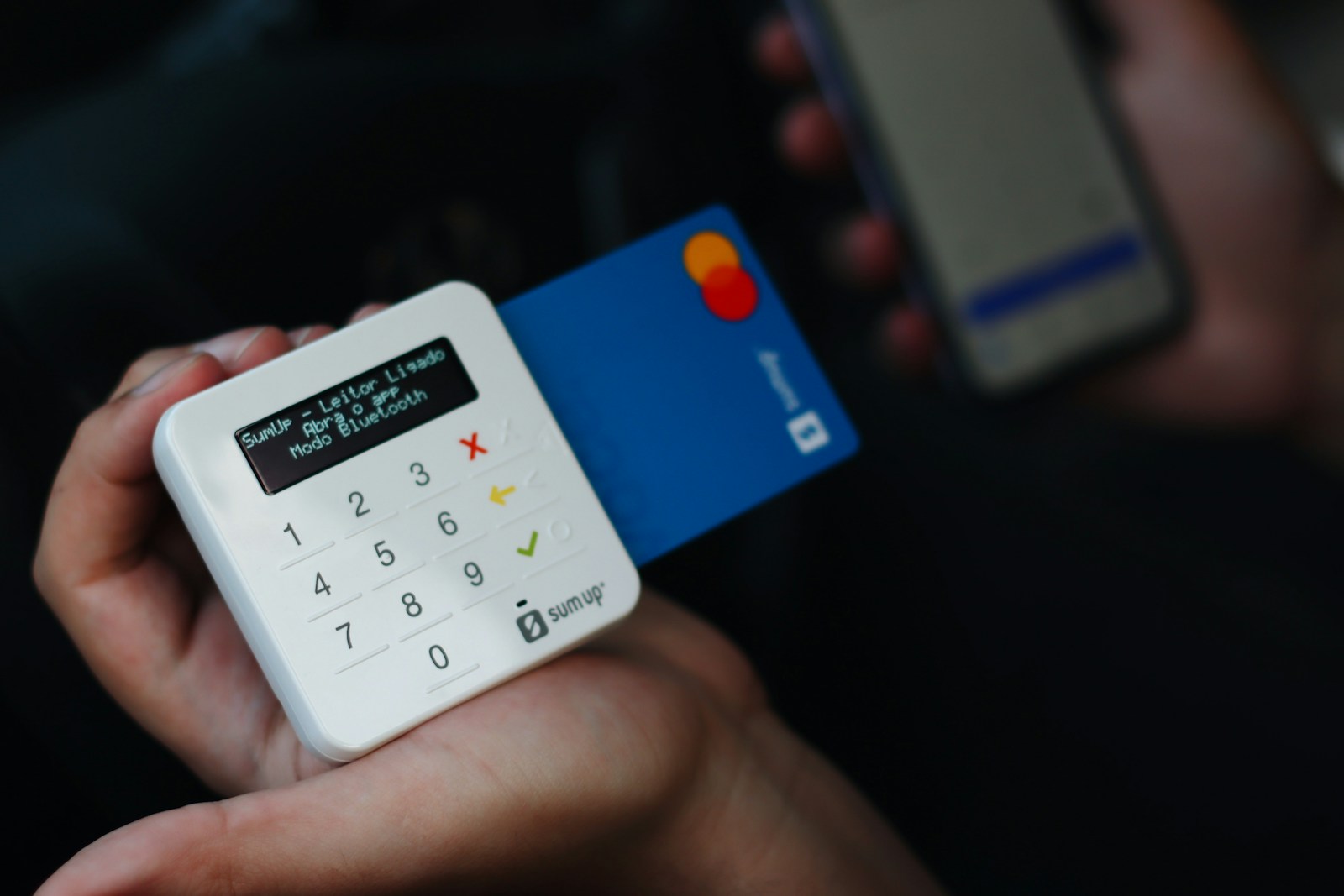How to Build Credit Without a Steady Paycheck

As a freelancer or gig worker, you know the instability of income that comes with working outside of traditional employment. But just because your paychecks aren't steady doesn't mean you can't establish and build your credit. In fact, building strong credit is possible even on an irregular income if you use the right strategies.
This article will walk you through practical guide to take control of your finances and credit score, equipping you with knowledge to make progress regardless of fluctuating pay. You'll learn key actions for responsibly using credit and optimizing payment history, the most influential factor in your score. With determination and these tips, you can build credit steadily over time - no steady pay required.

The Challenges When You Build Credit as a Freelancer
As a freelancer, establishing good credit can be difficult without the steady income of a traditional job. However, there are a few strategies you can employ to build your credit over time.
Pay Your Bills On Time
The single most important thing you can do is pay all your bills on time each month. Late or missed payments severely hurt your credit score. Set up automatic payments or reminders to ensure timely payments.
Keep Low Balances
Maintain low balances on your credit cards compared to your limits to positively impact your credit utilization ratio, constituting 30% of your credit score. Regularly reduce outstanding balances for credit score improvement.
Become an Authorized User
Enhance your credit by requesting someone with a strong credit history to add you as an authorized user on their credit card. Ensure their extended, impeccable payment record and low balances before becoming an authorized user to positively impact your credit score.
Apply for a Secured Card
If needed, apply for a secured credit card, which requires a cash deposit to establish your line of credit. Use the card responsibly by keeping low balances and paying on time. After about a year, you can qualify for an unsecured card and get your deposit back.
Building credit as a freelancer takes time and discipline. Following these strategies will establish a solid credit foundation, allowing you to qualify for better interest rates and greater flexibility down the road. Stay dedicated, work within your means, and your score will surely rise over time.
Start With a Secured Credit Card
To build credit without a consistent income, opting for a secured credit card is a viable choice. With a secured card, a cash deposit is necessary, acting as your credit line. The deposit dictates your credit limit and mitigates risk for the card issuer, ensuring that your limit aligns with the deposit amount.
Look for a Card That Reports to Credit Bureaus
Ensure the secured card you choose reports account information to these three major credit bureaus: Equifax, Experian, and TransUnion. If the card does not report to the bureaus, there is no way for it to help build your credit history. Some recommended secured cards that report to the bureaus include the Discover it® Secured Credit Card and the Capital One® Secured Mastercard®.
Use the Card Responsibly
Once you have a secured card, use it responsibly to establish a good payment pattern. Make small purchases that you pay off each month. Keep your balances low relative to your credit limit. Maintaining a positive payment history and managing your credit utilization ratio are critical elements impacting your credit score. Ensure timely payments every month and aim to keep your balances below 30% of your credit limit.
After 6-12 months of responsible use, the card issuer may return your security deposit and upgrade you to an unsecured card. They may also increase your credit limit. Continue using credit responsibly and checking your credit report and score regularly. Building credit takes time, but starting with a secured card and using it properly is an important first step.
Become an Authorized User on Someone's Account
To establish your credit history when lacking a stable income, consider becoming an authorized user on someone else’s credit card. As an authorized user, you'll have a card linked to the primary account holder’s account, and activities are reported on both credit reports. Although you share the card, the primary account holder bears responsibility for payments.
Ask a family member or friend with good credit to add you, choosing an account with a long history and low balance. Use the card sparingly, ensuring timely and full payments, while the primary account holder maintains regular usage and payment practices. This collaborative approach can aid in building your credit.
After six months or more of responsible use, you can apply for your own credit card using your newly established credit history. You may now qualify for a regular unsecured card, potentially with a lower interest rate than a secured card. Be sure to check your credit report and scores to ensure the account information has been reporting properly. If not, contact the credit card issuer to correct the errors.
When you open your own credit card account, you can ask to be removed as an authorized user on the other account. However, it may be beneficial to remain an authorized user to maintain your credit utilization ratio and lengthen your credit history. Either way, be sure any shared accounts remain in good standing to avoid damage to your now-established credit. Building credit through authorized user status is an easy first step, but diligent monitoring and responsible habits are key to continued credit health.
Look Into Credit Builder Loans
Credit builder loans are crafted with the primary goal of assisting individuals in establishing a positive payment history and enhancing their credit scores. These loans typically range from $500 to $5000, which you repay over 12-24 months with interest. The loan proceeds are deposited into a locked savings account that you gain access to once you've made all payments. The interest rates on these loans are usually higher than a standard personal loan. However, the main goal is to build your credit, not necessarily save money.
Look for Options at Credit Unions
Credit unions often offer credit builder loans with reasonable interest rates and fewer fees compared to traditional banks. They are also more likely to approve those with little or no credit history. Do some research to find credit unions in your area that offer these types of loans. Schedule a meeting with a loan officer to explore suitable options and terms aligning with your needs and budget. Prepare to present details about your income sources, demonstrating your capacity to fulfill loan repayment.
Make On-Time Payments
The most important part of a credit builder loan is making on-time payments each month. Late or missed payments severely hurt your credit and negate the purpose of the loan. Establish automated payments from your checking account to guarantee timely payments every billing cycle. Maintain a record of all transactions to address potential errors. Your credit score heavily relies on your payment history, emphasizing the importance of consistent on-time payments.
Check Your Credit Report
Once you've made several consecutive on-time payments, check your credit report to verify the loan and payments are being reported to the credit bureaus. All three bureaus (Equifax, Experian, and TransUnion) should show the new account information. If not reported after 3-6 months, contact your credit union to correct the issue. Your credit score should start to improve as a result of the new account and payment history. Continue making on-time payments until the balance is paid in full.
Through commitment, a credit builder loan serves as an effective method for freelancers and gig workers to forge a positive credit history and elevate their scores, unlocking additional opportunities. Do your research, find a credit union partner, and commit to diligent repayment of the loan to achieve the best results. Building credit without a steady paycheck takes patience and consistency, but will pay off significantly in the long run.
Leverage Peer-to-Peer Lending When You Build Credit Score
Check Your Credit Score
To determine your eligibility for peer-to-peer lending, check your credit score. Platforms like LendingClub and Prosper allow those with fair to good credit (scores of 600 and above) to apply for personal loans. The higher your score, the lower your interest rate.
Research Lenders and Apply
Research peer-to-peer lending marketplaces to compare interest rates and fees. Once you find a suitable lender, complete an application which will prompt a credit check. The lender will evaluate your creditworthiness and assign an interest rate based on your credit score and financial profile.
Choose a Loan and Repay
If approved, you can choose from loan offers with varying terms. Select an offer and the loan amount is deposited directly to your bank account. You then make fixed monthly payments over the loan term until the balance is repaid. Timely payments are recorded by credit bureaus, contributing to the development of your credit history.
Tips for Successful Credit Building
To increase your chances of approval and secure the best offer:
• Only apply for what you need. Borrowing more than necessary can be difficult to repay and hurt your credit utilization ratio.
• Have a low debt-to-income ratio. Aim for less than 36% of your gross income going toward debt payments each month.
• Provide verification of income. Supply recent pay stubs, tax returns, or bank statements to confirm your income.
• Make on-time repayments. Pay at least the minimum amount due each month before the due date. Delinquent or overlooked payments significantly impact your credit score and may result in penalties.
• Reapply as your score improves. If denied at first, continue building credit and reapply in 6-12 months for a better chance of approval and lower interest rate.
Peer-to-peer lending is an accessible way to build credit when you have a limited credit history or irregular income. By borrowing responsibly and making consistent on-time payments, you can establish a good payment record, improve your score, and open the door to other opportunities. With time and diligence, you'll build a solid credit foundation.
Strategically Use Retail Store Cards
As a freelancer without a steady income, building credit can be challenging. However, retail store credit cards are more accessible and can help establish your credit history when used strategically.
Make On-Time Payments
When you open a retail store card, use it periodically for small purchases within your budget and pay the full balance on time each month. This shows creditors you can responsibly use credit and builds your payment history. After six to twelve months of on-time payments, your credit score should improve.
Keep Low Balances
Only use your retail cards for what you can afford to pay off each month. Keep balances low relative to your credit limits. High credit utilization ratios hurt your score.
Check for Perks
Some retail cards offer rewards like discounts, coupons or loyalty programs. See if any stores you frequent regularly offer cards with perks that benefit you. Only open new cards if needed. Multiple new accounts can lower your score.
Consider an Unsecured Card
Once you've established a good payment pattern with retail cards for 6-12 months, you'll likely qualify for an unsecured card with better terms. Unsecured cards report to the credit bureaus like Visa and MasterCard and continue building your credit. Retail cards often have higher APRs. Pay off retail balances before interest charges accrue, then consider canceling some cards. Too many open accounts can be a red flag for creditors.
When you build credit without a steady income takes discipline and time. Using a strategic approach with retail store cards to establish a credit history and then progressing to unsecured cards as your score improves is an effective way for gig workers and freelancers to achieve good credit. Monitoring your credit reports and scores regularly helps ensure your hard work continues paying off.

Automate Payments to Build Credit History
To establish credit without a steady source of income, utilize payment automation. By setting up automatic payments for your bills and expenses, you demonstrate responsible behavior to credit bureaus.
Set up autopay for recurring bills
Link your checking account to automatically pay for utilities, rent, insurance premiums, and subscription services. Consistent payments will be reported to credit bureaus, contributing to the gradual development of your credit history. Ensure proper budgeting to maintain sufficient funds for timely payments. Avoid late or missed payments, as they can significantly harm your credit.
Use credit cards for everyday spending
For variable expenses like groceries, gas, and dining out, use a credit card to make the purchase and then set up an automatic payment for the full statement balance each month. Using a credit card responsibly, paying on time and in full, helps establish a good payment pattern. Keep your credit card balances low relative to your limits, as high balances hurt your credit utilization ratio.
Consider a secured card
Consider applying for a secured credit card if necessary. By depositing a specific amount of money, equivalent to your credit limit, you secure the card. The issuer of the secured card reports to credit bureaus, facilitating the process of building credit. Following responsible usage of the card for a minimum of 6-12 months, you may seek to upgrade to an unsecured card, subsequently recovering your initial deposit.
By automating as many payments as possible and using credit cards regularly while paying on time and in full, you can build credit without a fixed income stream. Consistently paying subscriptions, bills, and other expenses demonstrates financial responsibility to potential lenders and credit card issuers. Over time, your credit scores will improve, opening up more opportunities. The key is making payments on time, every time.
Check Your Credit Regularly
To build credit without a steady income, it is imperative that you monitor your credit report and score regularly. Examining your personal credit will not have adverse effects on your credit score. Periodically review your credit reports from Equifax, Experian, and TransUnion to ensure accuracy. Check for potential signs of fraud or identity theft, like unfamiliar accounts. Promptly dispute substantial errors with credit bureaus for timely correction.
In addition to your credit reports, check your credit scores. The most well-known scores are the FICO Scores and VantageScores. Your scores can impact your ability to get approved for new credit, insurance, apartments, and in some cases, jobs. Monitor your scores over time to see how your credit building actions are impacting your progress. Scores often differ between the bureaus, so check scores from each one.
When possible, access your credit reports and scores for free through AnnualCreditReport.com and CreditKarma.com. However, you may have to pay nominal fees for your FICO Scores and reports from some bureaus. The fees are worthwhile to closely supervise your credit during this crucial time.
Building credit without steady income requires diligence and patience. While it can take time, checking your credit regularly will allow you to course correct as needed to achieve your goals. By consistently monitoring your credit scores and adopting responsible credit practices, you'll gain valuable insights into the factors shaping your creditworthiness. Over time, these actions will contribute to building a robust credit history, providing access to desired opportunities. Staying proactive with your credit empowers you to thrive, even without a stable income.
FAQs on Building Credit for Freelancers
Building credit is essential for freelancers to access loans, credit cards, and favorable interest rates. Yet, creating credit can pose challenges without a consistent income. Explore common queries and responses to guide freelancers in building credit:
How can I build credit without a steady income? The key is using credit responsibly over time. Open a secured credit card, that usually requires a cash deposit, and use it regularly while paying on time. After 6-12 months, you can apply for an unsecured card. Also, you can take out a small installment loan and pay it back on schedule. These techniques demonstrate you can manage debt responsibly.
Will freelance income count toward my debt-to-income ratio? Unfortunately, freelance income may not be counted fully since it’s variable. Lenders prefer steady income streams. However, you can provide tax returns, bank statements, and contracts to show your income history and the potential for future earnings. Some lenders may consider your average monthly deposits over 6-12 months.
How else can I boost my credit score? Check your credit report for errors and make sure to dispute them. Pay all bills on time. Keep low credit card balances. Do not apply for too many new credit accounts quickly. Take out small loans and pay them back as agreed. These responsible actions will boost your score over time.
Can freelancers qualify for mortgages and auto loans? Yes, freelancers can qualify for major loans, but the process may be more difficult. Be prepared to provide extensive records to demonstrate your income and ability to repay. Meet higher down payment requirements, typically 20% or more. Look for lenders familiar with freelancers and the gig economy. While challenging, many freelancers do obtain mortgages, auto loans, and other financing.
With diligence and responsible credit practices, freelancers absolutely can build strong credit and access the financing they need. It may take more time and require adapting to the realities of variable income, but by following the key principles of using credit judiciously and maintaining an excellent payment record, freelancers can achieve a solid financial footing.
Conclusion
In closing, building credit without a steady paycheck requires diligence and strategy. Utilize secured credit cards, become an authorized user, and take out credit builder loans to demonstrate responsible use. Pay all bills on time, keep balances low, and check credit reports regularly.
Building credit takes time, but establishing healthy financial habits now will pay off when you need good credit later. With concerted effort and smart practices, freelancers can build credit even on variable income. Consistent hard work will be rewarded with access to better rates and more options. You now have actionable tips to start building your credit. Implement a few at a time, stay focused on long-term credit health, and you will see results.
Gigs Money Tips
Financial Planning tips for Gig Economy Workers.




